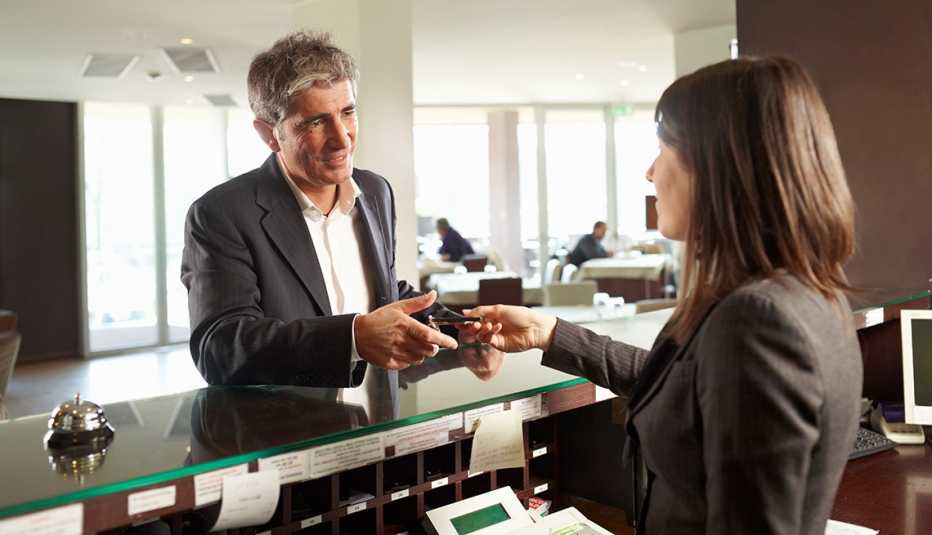AARP Hearing Center
Whenever we travel — even to visit family — we have to stay in a hotel. The typical home just doesn't accommodate Barbara's 350-pound power wheelchair. We need wider doorways, grab bars in the bathroom, ample turning space and a special shower.
Fortunately, hotels in the U.S. have accessible guest rooms for wheelchair users. But how well a guest room works for us varies from hotel to hotel.
At some, wheelchair users like Barbara face obstacles that can range from mild inconveniences to major safety concerns — when a shower's bench is unstable or its grab bars are missing, for instance. That's despite the fact that adults with disabilities spent $58.7 billion in 2018 and 2019 on travel, according to a survey by the Open Doors Organization, a nonprofit that works to improve the quality of life for people with disabilities.
If you use a wheelchair or travel with someone who does, follow these tips to manage some of the common difficulties encountered at hotels.
Plan and reserve
A small fraction of hotel rooms are designed for guests who have disabilities. The Americans with Disabilities Act (ADA) mandates that hotels with 151 to 200 guest rooms have six accessible rooms, and only two must include a roll-in shower (a shower that is typically larger with a zero barrier threshold, a handheld shower sprayer and a bench so the wheelchair user can transfer and sit while bathing). Hotels with 50 or fewer rooms are not required to have any roll-in showers.
Bill Sears, a 62-year-old retiree in Baltimore, spent 80 days driving solo across America and parts of Canada in 2019. Sears can't walk or stand and uses a manual wheelchair. Before beginning his journey, he secured reservations for wheelchair-accessible guest rooms with roll-in showers at 36 hotels.
Sears says he knew that hotels at national parks fill up fast, so he made his reservations there a year in advance. For other hotels along his route, he booked two to three months before his arrival date.
Knowing your choices are limited, always make reservations as far in advance as possible — especially if you are visiting during peak tourist season or for a major event.
































.jpg?crop=true&anchor=13,195&q=80&color=ffffffff&u=lywnjt&w=2008&h=1154)






























